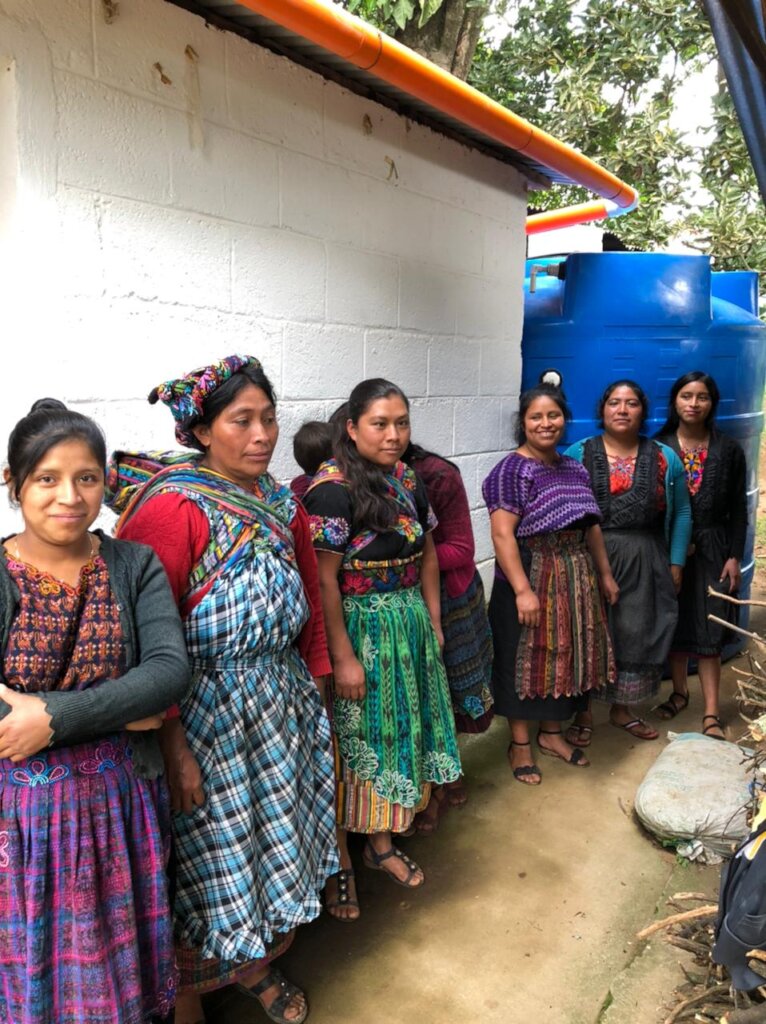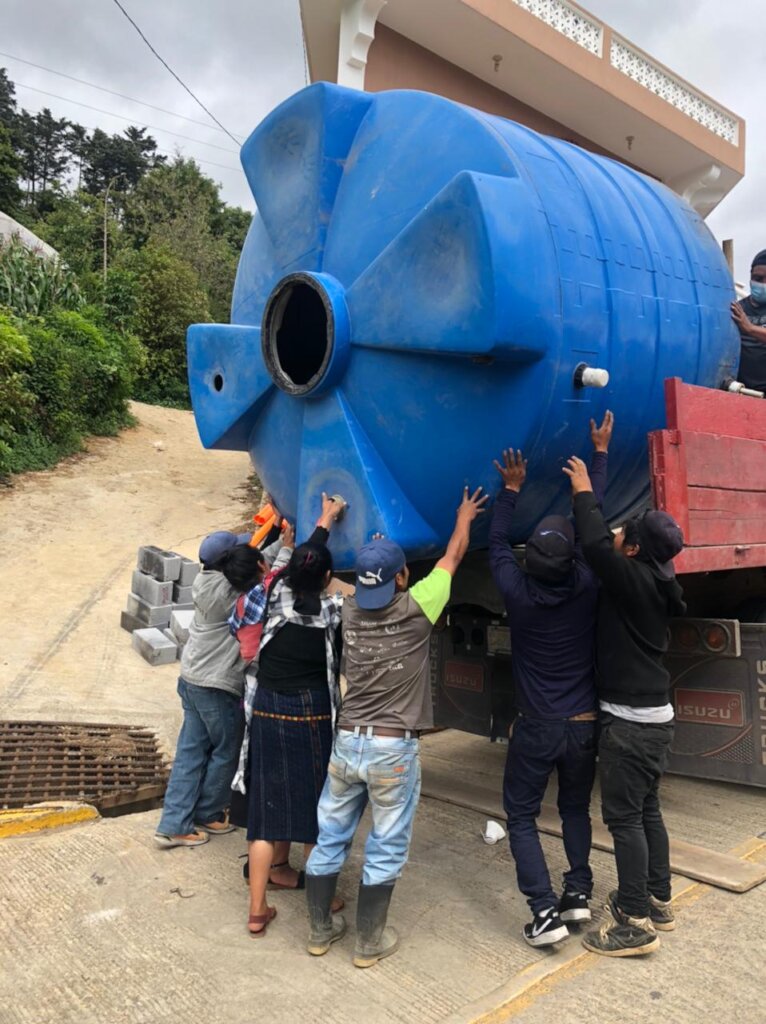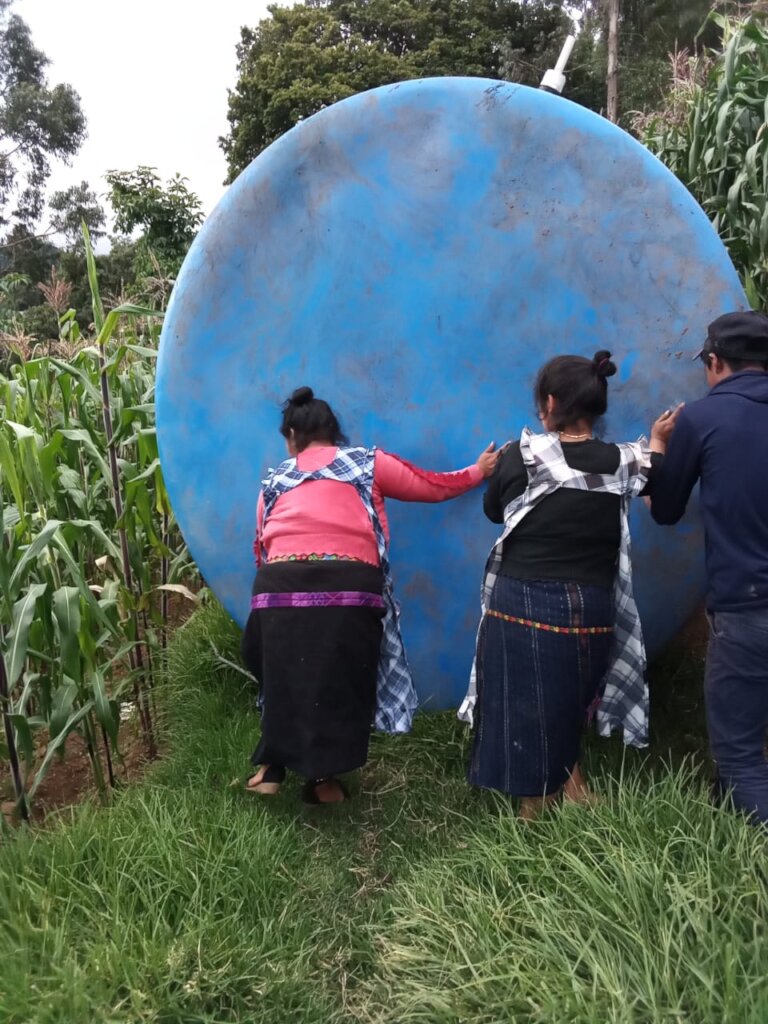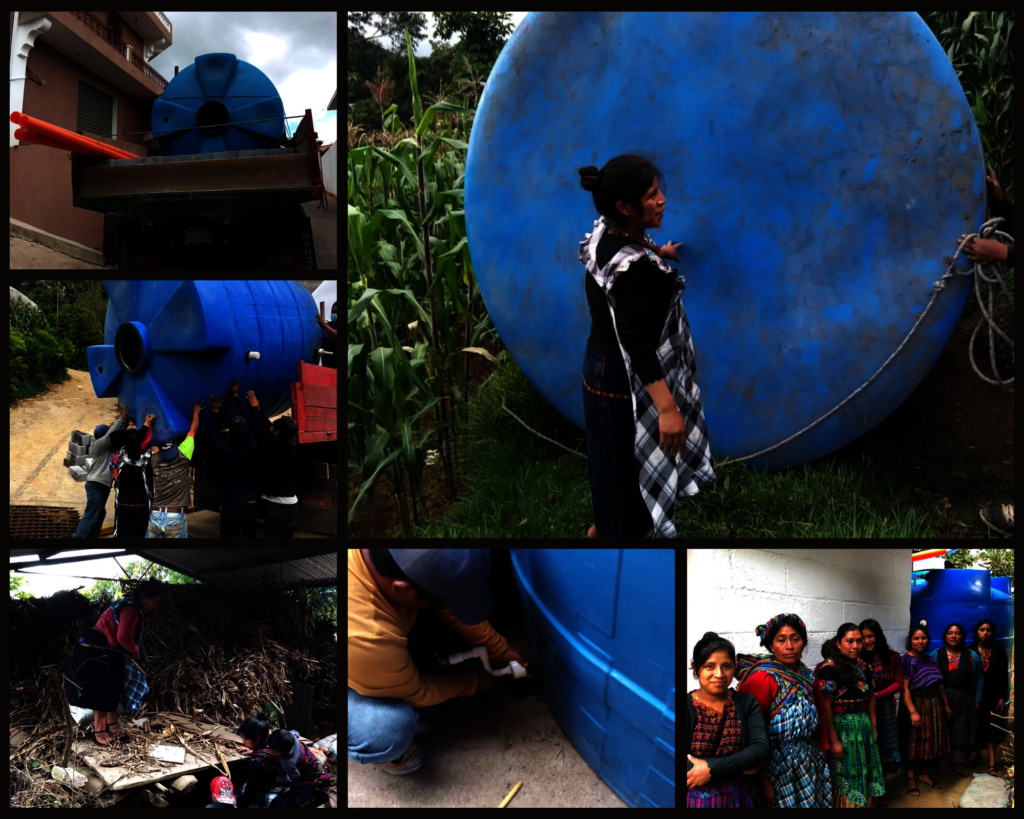By Ben Blevins | Community Organizer
"The intensifying impacts of climate change pose a serious global threat, particularly for rural populations whose livelihoods are closely tied to natural resources. Yet there is a lack of critical understanding of how asymmetric power dynamics shape the vulnerabilities of such populations under climate change" (Heikkinen. A, 2021).
The Las Campanas forestry enterprise provides full-time employment for a dozen women in the Western Highland community of Espumpuja, located at over 8300 feet elevation on the borderline between the departments of Quetzaltenango and San Marcos. The Association of Highland Women's (AMA) circle exemplifies the resiliency and agency that result from the organization's empowerment methodology. The lowering of regional water tables coupled with increased demand has threatened the viability of the enterprise. During the last year, students from Virginia Commonwealth University and the University of Richmond assisted the Highland Support Project (HSP) in developing funds to help the enterprise install community-wide rainwater harvesting infrastructure to sustain the tree nursery.
The forestry enterprise, formed by the late community leader Dona Carman Romero, was initiated to maintain genetic diversity in the local tree stock. The women of the community had noticed the negative impacts of the Eucalyptus trees promoted by international development agencies as a source of lumber, firewood, and windbreakers. The vision behind the social-impact enterprise was to gather seeds from native plant species to maintain genetic diversity and offer an alternative to the Eucalyptus seedlings flooding the local market. The enterprise also provided the women of the community with a source of income that is not dependent on expensive inputs that drain away any profits.
Eucalyptus grows faster and better, even in poor soils, than many other species (Hailu 2002, Hailu et al. 2003). Numerous studies demonstrate the economic advantages of the species in economically marginalized regions. The species was considered ideal for closing the increasing gap between the demand for lumber and supply in areas with accelerating deforestation. The rapid urbanization and population growth have created an increased need for building materials and firewood. The species remains the preferred choice for commercial production because of its fast growth, high biomass production, coppicing ability, disease resistance, and browsing (Kindu et al. 2006; Hailu 2002; Zewdia 2008; Negasa et al. 2016).
The women of Espumpuja were not alone in identifying the adverse environmental impact of the Eucalyptus tree. Researchers have identified problems ranging from soil acidification, allelopathic effect (harming neighboring plants), nutrient depletion, and excessive water utilization (Negasa et al., 2017; Bowen and Nambiar, 1984; Basu and kandasamy, 1997; Hailu et al., 2003; Sanit -André et al., 2008). Community members also identified that the pine seedlings provided by large tree nurseries were more suspectable to disease, possibly because of the limited genetic diversity in the tree stock.
The Eucalyptus and fast-growing pine trees are the preferred stock of industrial-scale tree nurseries that have sprouted up throughout the country in response to increased funding for reforestation. The social impact of these well-capitalized tree nurseries is the displacement of small-scale, informal producers from local and regional markets. Guadalupe Ramirez, one of the founders of AMA, commented that Globalization has displaced women from every imaginable market activity. Activities such as clean indoor cookstoves and reforestation have been appropriated by well-financed international actors that relegate community members to be recipients of aid and short-term wage employees rather than empowered participants. "They sell our poverty to displace us from our markets" (Guadalupe Ramirez, 2022).
The decline in the local water table and a population explosion in the neighboring municipal center of San Juan Ostencalo have threatened the viability of the Los Campanas forestry enterprise. The municipality has established water restrictions to divert groundwater from the community to ensure sufficient urban residents' drinking water access. These policies necessitated that the community-based development committee implements water restrictions that prohibit the drawing of surface water for commercial endeavors. The community is located at the top of a ridge. Hence, no water arrives from above, and the thick layers of rock below complicate any plans for accessing the diminishing underground aquifer.
The competing water demands jeopardized the viability of the tree nursery, and the women lacked the political power to defend their economic interests with the municipal government. The enterprise members are also community members and appreciate the critical need for neighbors to access drinking water. We are so excited to have participated in a project that facilitates community collaboration to solve root problems through cooperation rather than competition.
Engineering students from York college, under the direction of Paul Ackerman, assisted with developing a schematic for a rainwater harvesting system to gravity feed the tree nursery. Students from the University of Richmond and Virginia Commonwealth University participating in HSP's Deep Ecology Education Program raised funds to purchase the materials to construct a rainwater harvesting system.
The system includes a 15,000-liter capacity in water storage and a system of gutters with pipping to harvest rainwater collected from neighboring roofs. The most significant challenge in the project turned out to be the moving of the giant tanks a quarter of a mile uphill from the closet point that the flatbed truck delivering the tank could reach. The system has been installed today, and the first drops of water have irrigated the seedlings.
Join a stove building and reforestation team with the Highland Support Project and visit the Los Campanas tree nursery. You can experience the forestry process from collecting old growth seeds to creating compost, transplanting saplings, to talking with the plants to welcome their new neighbor on a reforestation day.
References
Hailu Z (2002) Ecological impact evaluation of Eucalyptus plantations in comparison with agricultural and grazing land-use types in the highlands of Ethiopia. Doctoral thesis. Institute of Forest Ecology, University of Natural Resources and Life Sciences, Vienna, p 283
Hailu Z, Sieghardt M, Schume H, Ottner F, Glatzel G, Assefa B, Hailu TT (2003) Impact of Eucalyptus globulus and Eucalyptus camaldulensis small scale plantations on chemical and physical soil properties and on soil hydrological parameter in the highland of Ethiopia—a comparison with other land-use systems. Final Project-Report, p 178
Heikkinen, A.M. Climate change, power, and vulnerabilities in the Peruvian Highlands. Reg Environ Change 21, 82 (2021). https://doi.org/10.1007/s10113-021-01825-8
Negasa DJ, Mbilinyi BP, Mahoo HF, Lemenih M (2016) Evaluation of land use/land cover changes and Eucalyptus expansion in Meja watershed, Ethiopia. J Geogr Environ Earth Sci Int 7(3):1–12 Negasa DJ, Mbilinyi BP, Mahoo HF, Lemenih M (2017a) Comparative assessment of soil and nutrient losses from three land uses in the central highlands of Ethiopia. Int J Water Resour Environ Eng 9:1–7
Saint-André L, Laclau JP, Deleporte P, Gava JL, Gonçalves JLM, Mendham D, Nzila JD, Smith C, Toit BD, Xu DP, Sankaran KV, Marien JN, Nouvellon Y, Bouillet JP, Ranger J (2008) Slash and litter management effects on Eucalyptus productivity: a synthesis using a growth and yield modelling approach. Site management and productivity in tropical plantation forests, p 173
Zewdie M (2008) Temporal changes of biomass production, soil properties and ground flora in Eucalyptus globulus plantations in the central highlands of Ethiopia. Doctoral dissertation. Swedish University of Agricultural Sciences, Uppsala, p 74 Accessed on 21 June 2017
Links:
Project reports on GlobalGiving are posted directly to globalgiving.org by Project Leaders as they are completed, generally every 3-4 months. To protect the integrity of these documents, GlobalGiving does not alter them; therefore you may find some language or formatting issues.
If you donate to this project or have donated to this project, you can receive an email when this project posts a report. You can also subscribe for reports without donating.
Support this important cause by creating a personalized fundraising page.
Start a Fundraiser


